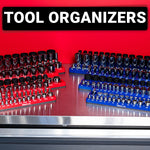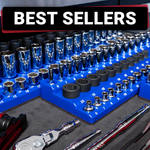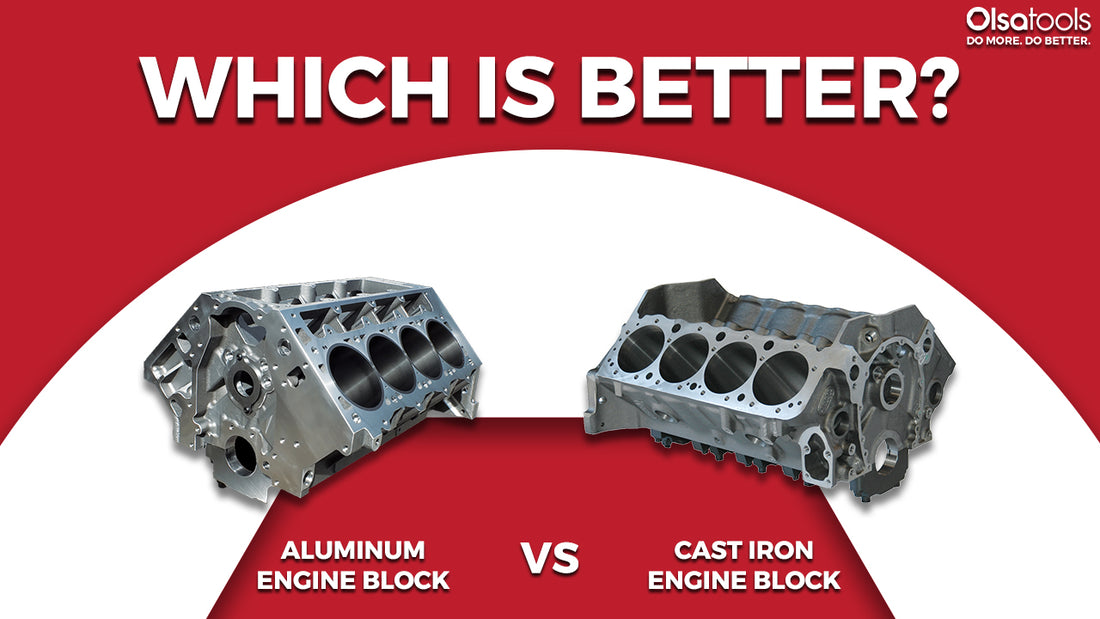An engine block is the car's skeleton as it is the largest and most sophisticated part in an internal combustion engine. It supports all the big components of the vehicle, from the oil pans to the cylinder head. It houses the pistons and encases their incessant activity.
When referring to engine block materials, aluminum and cast iron are the most commonly used for passenger cars. This is why the debate between these metals always comes to the table. We are going to dive into this long discussion to understand the difference between aluminum vs. cast iron engine blocks.
Iron Blocks Vs. Aluminum Blocks

While iron engine blocks dominated the passenger vehicles industry during earlier decades, aluminum blocks have been taking over in recent years. Both are perfectly engineered to deliver efficient performance due to modern casting techniques.
The type of cast iron used in engine blocks is gray cast iron, which has a graphite microstructure that delivers its characteristic gray color. Gray cast iron is classified into classes, classes 20 and 25 being the most popular for passenger car engine blocks, featuring a tensile strength of 20,000 to 25,000 psi.
On the other hand, aluminum engine blocks feature a mix of different alloys, the most commonly used alloys being A356 and 319, with a tensile strength of 10,000 to 14,000 psi
Weight and Strength
When it comes to weight, aluminum is more efficient. Aluminum is twice as light as iron, so you would imagine that aluminum engine blocks are twice as light too, but this is far from what happens in reality. The reason is that aluminum is not as strong as cast iron and car manufacturers compensate for this by building thicker walls in the engine block; which results in a heavier overall setup than you would expect with aluminum.
However, the difference in weight is still significant, reducing an average of 30% compared to its iron counterparts; this translates into more efficient fuel consumption and better acceleration time.
Of course, iron is stronger and stiffer than aluminum. It can withstand multiple sorts of deformation and delivers a longer lifespan, making it possible to better absorb noise and vibration than aluminum blocks.
But this doesn't mean aluminum is the worst choice for engine manufacturing because modern casting techniques create powerful and durable aluminum engine blocks. This engine block material goes through a more complex design with a lot of reinforcement; requiring stress saddles in the oil galley and oil pan area
Thermal Performance
Aluminum engine blocks have better heat expansion and reach operating engine temperatures faster than iron engine blocks. They can also transfer more heat away to the engine coolant. However, in overheating scenarios, an aluminum engine block is more prone to losing some of its original shapes, requiring major engine servicing if the damage is too problematic.
Repair & Rebuilding
The best engine block material for repairing an engine depends on a variety of factors, including the type of engine, the intended use of the engine, and the budget for repairs. Cast iron is a traditional and reliable material that is still commonly used for engine blocks, aluminum is a softer metal and can be machined more easily. For example, if an aluminum engine block gets cracked and has to go through a repairing procedure, you can use Epoxy or a TIG welder to fill the crack.
However, engine rebuilt and repair can become a challenging task as it requires a lot of skill and energy, especially without the right tools. If you need to make this process easier and more efficient, at Olsa Tools you can find professional-grade engine repairing gears that are worth having inside your toolbox.

Final Thoughts
The question “what engine block is better?” can not be answered entirely as this usually comes down to the specific needs and requirements of the engine to determine the material that will deliver the best performance.
Although cast iron engine blocks can handle the greater horsepower, the rapid advance in engine design has made it possible to create well-built aluminum and even steel engine blocks that can handle nearly the same power as cast-iron blocks. So, in terms of horsepower, there’s no real performance benefit as both can be strong. The aluminum counterpart has a higher strength-to-weight ratio than mild metal which has helped to increase its use within the automotive manufacturing industry. Finally, if you’re a technician looking for tools to work on engines repair or engine swap projects, or any other mechanical task, you might want to take a look at our online store.











